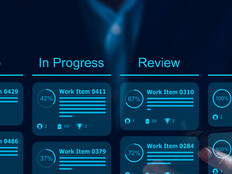DevOps principles don’t ignore core issues. Development and operational teams work together, intersecting where necessary. When they don’t intersect, a theory of site reliability engineering takes hold. SRE is a monitoring function, and some have decided that it should be an additional administrative role. This has created the friction between Dev, Ops and SRE.
Conceptually, platform engineering has become a mix of operations and infrastructure. It’s a not a layer on top of what software engineering entails; instead, it’s a nervous system built on much of the thinking that has made DevOps a strong success.
Platform engineering now has a track record. It's time to separate the facts from fiction:
Fact: Not All Platforms Are the Same
It can be tempting to think that if a solution works for one scenario, it will work for another; however, every platform serves a unique purpose, and what works for one might not fit another. Solutions should be tailored based on specific needs rather than a one-size-fits-all approach.
RELATED: The right CX platforms create tailored journeys for citizens and employees.
Fallacy: Platform Engineers Work Alone
The practice requires a team effort, and thorough team and responsibility mapping to ensure everyone works together toward the same goal. Communication must flow seamlessly with service teams, designers, security experts and other stakeholders — particularly within the public sector.
Fallacy: Security Is the Responsibility of the Security Team
Every line of code and every architectural decision represents an entry point for attack and must be viewed through a security lens. Security testing must begin from the very start of any project and continue throughout development to the product’s release.
Fallacy: Platform Engineering Is Cost-Prohibitive in the Public Sector
Platform engineering can reduce costs and simplify the complexity of various tools, workflows and dependencies, particularly when developers work from an internal platform that enables scalability and hastens time to launch by incorporating reusable components such as libraries, templates and other predefined resources, while also enforcing standards and governance.
Fallacy: Adding Platform Engineering Always Slows Progress
A problematic adoption of platform engineering tends to increase friction unless there is buy-in from all participants, contracting agencies and stakeholders. But platform engineering can also produce visible progress quickly, and many are surprised with successful implementations that have buy-in.
LEARN MORE: Modernizing your agency’s digital experience requires consolidating technology.
Fallacy: Platform Engineering Doesn’t Alter the SBOM
The engineering nervous system employed through platform engineering becomes the bottom layer of almost every stack. It’s an evolving definition of stack components, vetted tools and software engineering ingredients.
It’s no surprise that platform engineering sometimes becomes a rock thrown into the gears of progress. Performed correctly, platform engineering becomes part of a successful DevOps operation through thoughtful integration. But to achieve that, platform engineers must be involved in projects as equal members. Barring that, platform engineering grinds slowly, eventually enabling teamwork. Until that happens, there is an interregnum of grinding noises, small fires and hair removal by the fistful.
Fact: Platform Engineering Is Evolution, Not Revolution
Platform engineering techniques provide essential instrumentation for all elements of the platform, including DevOps, testing and hosted production instances, all with proscribed and consistent infrastructure. The consistency of platform engineering for the platform’s many manifestations means that there is cohesive binding between DevOps and the platform, wherever that platform exists, and on whichever turf it resides or moves toward.
Fallacy: Static Platforms Don’t Need Platform Engineers
This is wrong, both on-premises and in the cloud. Platform engineering isn’t a retirement plan. Instead, platform engineers are charged with keeping platforms greased for developers, software pipelines, compliance officers, security auditors, security event and information management tools and interagency liaisons.
UP NEXT: Agencies are incorporating safeguards experimenting with AI.
The resistance to platform engineering as a new team member in software engineering often involves fear of the unknown. Many of the techniques used by platform engineers contribute to DevOps in the same way that DevOps weaves the interdisciplinary efforts that unite development and operations teams. Platform engineering evolves those relationships more formally, but not at the price of productivity. Instead, platform engineering is another astute set of shoulders that can help carry the load.











